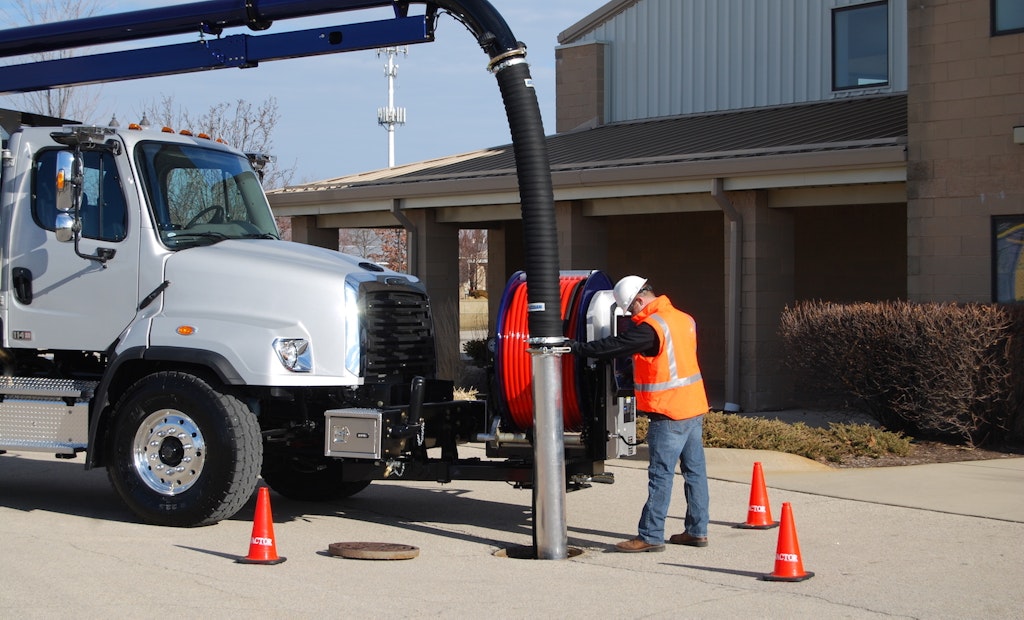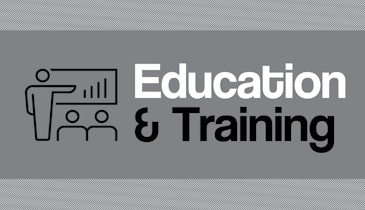“Safety first and always,” is more than just a motto. Safety is the primary concern in all operations and is everybody’s responsibility.
Knowing how to select, inspect and wear personal protective equipment, and its limitations, can help protect you from hazards on the job when cleaning and maintaining sewers and catch basins. The following PPE items should be worn as recommended best practices, or at management’s discretion.
Hard hat
A hard had should be worn when there is anything operating overhead, including the boom on your combination sewer cleaner.
Whether full-brimmed or cap style, a hard hat is designed to help protect you from a head impact and absorb the shock of an impact. It’s recommended that a hard hat be worn brim forward. The hard hat should fit securely on your head, while loose enough not to leave a mark on your skin when removed.
Face shield
A face shield should be worn anytime you are using high-pressure water with a hand gun or digging wand.
Designed to protect you from hazardous or chemical splashes, a face shield will only work properly when it is fully in the down position, locked in by the bracket.
Safety glasses
Safety glasses are designed to protect you against liquids, materials and objects that could injure your eyes. It is recommended that safety glasses be used together with a face shield whenever you are working with high-pressure water.
Ear plugs
Ear plugs should be worn when operating heavy equipment like a combination sewer cleaner or catch basin cleaner.
Disposable, reusable and corded/banded ear plugs can help protect your inner ear from temporary, partial or total, hearing loss when working around loud machinery and equipment.
High-visibility safety vest
Workers need to be seen at all times on the job, especially when working near vehicular traffic on roadways, shoulders or curbs. High-visibility safety vests featuring fluorescent fabric in such colors as bright yellow/green, bright orange and bright red help protect you from accidents and injuries, especially around extreme traffic hazards and moving machinery.
Retroreflective tape on the vest helps make you more visible in daylight and evening hours, and during lowlight conditions when light from vehicle headlights is reflected back. This essential high-visibility garment should be kept in good, clean condition and replaced when worn or dirty.
Safety gloves
Wearing gloves can help protect your hands from exposure to hazardous or infectious liquids or solids. Always check for wear and tear, which can compromise the gloves’ protection and gripping qualities. Replace worn, damaged or contaminated gloves immediately.
Steel-toed boots
Heavy-duty boots with reinforced toes provide protection from falling objects, prevent punctures from sharp objects and cutting hazards, and help prevent trips and falls while cleaning sewers and catch basins.
A good pair of boots with adequate cushioning and insulation will also prevent fatigue and provide some protection from extreme weather.
Rubber boots
Rubber boots should be worn whenever you are walking through sewage. They stand up well against most chemicals and liquids you may be exposed to on a routine basis.
Inspect and clean PPE
It is recommended that you inspect your PPE before each and every use — including redressing after work breaks and meals — and that you clean and store your PPE in between uses. For added safety, discard any defective PPE and replace with new equipment.
Any PPE contaminated with sewage, especially rubber boots, should be washed down with an antibacterial soap, or any soap followed by a bleach/water rinse.
Gary Toothe, CET, is a full-time training manager for FS Solutions with more than 35 years of experience in the industrial vacuum and water blast industries. As the experts on industrial vacuum and water blast equipment, FS Solutions makes OSHA training and compliance more convenient than ever through interactive courses.





